|
I passed the PMP exam recently and with it, am now a certified PMP 😊 What is PMP? It stands for Project Management Professional, and is regarded as the most renowned industry-agnostic standard for project management worldwide (More here). Should you get it? If you have managed projects before/have been part of the project management team and see yourself managing projects, I highly recommend it. How’s this post helping? Getting to the WHY of this post: I wrote a post on LinkedIn earlier this week to ‘announce’ the news and asked if there were any questions I could answer. As many questions overlapped over some categories, I thought of writing a public piece covering the answers (to expand the audience), and then some more.. Organization: This article is divided in 2 parts: I. The process of Applying, Preparing and Testing for PMP (Divided in 3 sections) II. 10 Tips to Pass the PMP (Divided in 2 sections) The process of Applying, Preparing and Testing for PMP:(1 section each for Applying, Preparing and Taking the test) 1. Applying For some, the longest span of time could be spent even before the application - if they include the time taken to think whether they should go for it. What I’d suggest? If you do meet the requirements and have enough real-world project experience, go ahead! It won’t be that difficult, given you’re ready to learn new perspectives with the right mindset (including admitting that your management style may not be perfect). First step though, would be to qualify – PMP is a test, but for already experienced professionals. So, in this step, you would have to (among other things) detail the project experience you’ve had, the roles you’ve performed and project management-related education/trainings you’ve received. Here’s the wall you should clear: 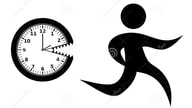 For the projects you chose to mention, be prepared to clarify the objective of the project, outcomes of the project and your roles and responsibilities. Experience will be added up categorically to see whether you qualify or need more experience before you can. Tip: Don’t write yourself off if you haven’t been ‘The Project Manager’ PMI clearly states that it is interested in the project responsibilities you’ve had, domains you’ve worked in, deliverables you’ve (well..) delivered, and the hours you’ve accumulated doing all of the above; and NOT only the title you’ve had. So even if you were not THE Project Manager, read up on the roles and responsibilities (Handbook here) covered under all 5 process groups (Initiating, Planning, Executing, Monitoring & Controlling, and Closing) and if you’ve had enough experience transcending all roles, go ahead and apply! 2. Preparing Once you’ve submitted the application and its approved (Hey, Congratulations on getting through the longest step yet), you have 1 calendar year of eligibility to take and pass the exam – you get 3 attempts (if you fail all 3, you’d have to wait a year from the date of last exam), but hopefully you won’t need them all, or even any more than one. 2.A. Preparation Time: How long does it take to prepare for the PMP? Nobody wants to hear this, but yes, the answer is ‘it depends’. Primarily on the experience you’ve already had, and secondarily on all the academic and behavioral attributes (what’s your reading speed, how well you digest and retain new concepts, how good are you at test taking, how well do you respond to a time-limited and result-oriented environment, etc). I’ll share what it was for me: I used to log the exact number of focused hours studied towards the exam (the log included the date, day, focused hours, # of pages/concepts covered, and my notes on that day’s study material). In total, I studied for 72 focused hours – these were the hours when I didn’t touch the phone/TV/laptop/any screen (which was hard at first). These hours were spread across months though as I studied on weekends and a typical stretch was 3-4 hours. Again, this can vary substantially from person to person, but from what I’ve read online otherwise, recommendation has been 100-200 hours. So what’s the right number for you? More than the number, its about how you’re progressing – more on this further in Section 2.B.5 (below) 2.B. Preparation Method: Sharing what I did - 2.B.0: Ordering the book! I mention this 0th step, as ordering the book is actually the first step that involves a financial commitment (applying for eligibility doesn’t) – the more time and money you invest in the certification from here on, the more you’ll get invested and higher the probability that you won’t give up. Backdrop: Before I started counting the focus hours, I did some research on the books available, their reviews, test pages from older editions, etc – and found Rita Mulcahy’s PMP Exam Prep, 9th Edition (‘Rita’s’ from now on) to be the most recommended and easy to read. I also heard good things about the Head First PMP, but I didn’t get to it, so have no personal reviews for it. Now onto the focus hours: I’ll divide the order of preparation in 4 parts: 2.B.1. Reading Rita’s cover-to-cover (except practice exams) 2.B.2. Reading PMBoK 6th edition cover-to-cover (ex-Glossary and Index, ofcourse) 2.B.3. Answering all of Rita’s Practice exams at once 2.B.4. Taking Mock exams First 2 are preparation. Last 2 are validation. For an approximate break up, I would say the first 2 steps took ~80% of the time. So, once you’re through the 4 steps, should you schedule the exam? 2.B.5. Decide when to take the Exam: Scenarios depending on results from Step 2.B.4. above:
While there’s no one passing score for the exam, once you get at the 75%+ mark in practice/mock tests, I think you should be good to go for the real exam. If there has been a lag between preparing and test day though, definitely set extra time to revise concepts again. 2.C. Resources: I used the following:
3. Taking the Test 3.A. Scheduling: Scheduling any exam surely gives you a deadline to work towards, so will recommend scheduling at least a month or two in advance of the intended date. Recently, PMI changed its exam vendor from Prometric to Pearson VUE. While their website and scheduling system was straightforward, availability was tight – especially if you need a test center of choice. I preferred a weekend date and the only location available was an hour away. The earlier you schedule, the better dates and location options you’ll get. 3.B. Test Day: If you’ve taken computerized tests before, this should be just another one. Rules are pretty standard, given its conducted by Pearson (details here). I’d say keep the following in mind:
3.C. Results: As soon as you’re done with the exam and you complete a survey that follows, you’ll see your results on the screen. Hopefully it says ‘Congratulations!’ and you’ve passed 😊 In which case, you certainly will ‘accept’ the exam results and collect the print out, which will show your relative performance by process group (whether you were above/on/below target). If you’re like me, you’ll still wait for the official email from PMI to celebrate – which thankfully arrives just the next day. What else happens the next day? You’re also added to the Global PMI registry – where anyone can verify that you’re a PMP holder and are in active status. Fun fact: Search by your last name and maybe you’ll find a far-off relative who’s a PMP too. I found only 2 people (including me) with my last name – the other person was in Canada. Hello, fellow PMP Goklani! Anyway, coming back, it’s time to celebrate, let your mentors know, and collect some freebies that come with passing the exam (well, that’d just be a digital badge and pin from PMI – but claim it, why not). 10 Tips/Observations to Pass the PMP :On Test Dynamics:
1. Understand the bucketed nature of the Exam: It’s important to understand that PMP Exam is not adaptive, i.e. it does not pick the next question from a different difficulty level, based on how you answered last. It’s rather a bucket of 200 questions drawn from a giant tub of questions. The whole bucket will have a certain level of difficulty assigned to it and the passing score for that bucket (I’m assuming) will be scaled to it. How does knowing this help? If you think your exam is way more difficult than your practice exams have been – Don’t worry about it and keep going, your passing score might be lower. On the other hand, if you’re getting all easy questions, don’t get overconfident. It might just be an easy bucket, but with a higher passing grade. As Forrest Gump’s Momma used to say, “Life is a bucket of PMP Questions. You never know which one you’re gonna get” 2. Getting to terms with the jumbled organization: You may have practiced exercises or practice tests by knowledge area or process groups, but the exam jumbles it all up. A question about estimating activity durations could be followed up with the one on the best approach to deal with a hurricane. It’s all mixed up. Although it may not seem like a big deal, not knowing what the next question is going to be, takes some initial seconds of getting to terms with ‘what this question is all about’. 2 tricks:
3. Time management: Basic math is straight forward: 200 questions & 240 minutes = 1 min/Question + 40 minutes to review. It does get complicated though. Difficulty level of the question, at times has little to do with how long it could take you to answer the question. If the question consists of a long paragraph and 4 choices worth 2 sentences each, it will take up time, regardless of it being difficult or not. On the other hand, seemingly difficult questions, could involve a calculation, which if done right the first time, could be solved in less than 30 seconds. So, while you should keep a track of how you’re doing on the intended 1 Q/min speed, don’t stress out if you’re behind, just because you got a lot of long questions at the start. Short ones will follow. At the same time though (I know, I keep taking both sides), be careful if you’re running at less than 1 min/Question left (Kind of TCPI >1, Eg: if you have 24 minutes left and 25 Questions to answer). At that stage, I’ll suggest flagging long questions and answering all short ones first. What’s flagging? Good question. 4. Utilize the power to flag questions: One good feature of the exam is its ability to flag questions, as you go. Once you’re done with answering all the questions, you can go back to review all your flagged questions. Don’t flag way too many questions, but the ones where you’re really torn between 2 choices, pick a choice and flag it – to review later. Also, in the sheet of paper you get, write down the 2 choices that you’re between, by the question number – so that when you revisit the question, you ignore reading other choices and save some seconds. 5. Take a shot: always! As Wayne Gretzky said “You miss 100% of the shots you don't take", and yes, you want to take them all! The exam doesn’t have a negative marking for getting things wrong. Any question left unanswered are a waste. - If you’re 10 minutes from completion and have 15 questions left for example, I’d say its better to speed through and pick between your top 2 choices for all the questions left, vs picking the perfect one for half as many questions. - If you come down to the last minute and have 5 questions left, I’d say even go ahead and click random choices (ignoring clearly outlandish statements that include always, never, forever, etc) for the 5 left, vs taking the minute to perfect one. I hope it doesn’t come down to that, but if it does, remember – attempt every question, take all the shots on goal you got! All of them! On PMI-Isms: 6. Realize that there’s no one right answer: You know how teachers used to say this to us when we were kids, to push us to at least answer something? I don’t know if it was true in that case, but it’s certainly true in the world of PMP: there’s truly (often) no one right answer. It’s all about which is more appropriate to be right first, or which is less wrong. The tonality and the situation in the question matters a lot, and may point you to the right choice (watch out for the urgency, what has happened vs is being discussed, etc), but more often than not, you’ll at least find 2 choices that would sound right to even a trained ear. Which one do you select? Of course the one that sounds more appropriate in the situation. It may not be even the best answer possible, but it should be the better of all choices. I also ran into a situation where I read the question and bam – I think I knew the answer..I went looking for it in the options, and…it was nowhere to be found. Yep, sometimes all the choices will sound wrong, but you’d have to pick the least worst and the most professionally acceptable. 7. Be ready to answer: “What should a PM do next?” This is the most common question asked – at least it was in the bucket chosen for me. Even if its not the most common, expect many questions to describe a situation followed with this question prompt. The exam is highly situational and is hell bent at pushing you to the decision point – not only knowing the processes/tools/calculations, but also putting you into the shoes of the PM and asking you “Mr/Mrs PM, Now what would you do?” If you haven’t been a PM before, it might be difficult. If you have, it might be even more difficult, as learnings from experience may go against what’s actually right. Here again, remember to not answer ‘what you have done’ or ‘what do you think you should do’, but more of ‘Now that you’ve read about the projet management best practices, what do you believe is best to do’. 8. Pay special attention to the order of things: The order in which PM processes occur is absolutely essential to understand. While many processes are iterative/loop back to former steps, the building blocks have a pattern. Many questions will be situational w.r.t. X1 has occurred, what should a PM do? Answer could be X2, while the wrong choices would be X3, X4 and X10. The most common one is along the lines of: ‘Client has requested a scope addition that won’t add any time/cost to the project, what should you do?’ Thinking about this question for example, it is essential to understand steps in the change control process, where: a) you don’t have to take any decision right away, and b) trust/follow the process – which in this case starts with collecting data about and recognizing/logging the change, submitting a change request to the change control board, analyzing its impact on all other constraints of project delivery, evaluating options, deciding steps forward based on the assessed impact, and negotiating the change with the customer and implementing it doesn’t affect the project charter. Some broad areas where absence of right order would lead to a string of wrong answers: Initiating, Planning, Risk Management and Change Control. 9. Pay special attention to the fit of things: Order is where we say X1 > leads to X2 > leads to X3. Fit is where I would say: a) Where does X1 fit in the change control process, or b) what needs to happen before X2 can start? It’s closely related to the order, but the focus is on decision points/ deliverables/ exchanges between things in order, which also provide an idea of where we are in managing the project and what deliverable should we be working on in the given scenario. Two common questions are along the lines of:
First one should be easy, but pay attention to the wording closely to differentiate what exactly is happening (are we planning/measuring/monitoring/controlling/changing something) and when is it happening (is it being baselined/iterated/forecasted). Second can get tricky – I’m not a big fan of Input/Output/Tool & Technique questions, but the key is to not memorize, rather understand the order of things and their fit/exchange points would intuitively make sense. For e.g. you need to evaluate qualitative and quantitative impacts of risks before you can plan risk responses. Hence, if you haven’t planned the risk responses yet, you’re in risk evaluation stage. 10. Finally, it’s all subjective: As we’ve covered above, most problems aren’t math problems. They don’t have a binary output. The correct answer lies in picking the right shade of grey, and that’s not easy. Whenever I got an answer wrong during practice exams, I would read the explanation for why – and I’d still think what I answered was right. If the same question was to appear again, I’d still answer what I did – but then of course, I’d be wrong. Figuring out the best way to deal with a situation (which involves situational analysis, obscure information, competing requirements, etc) is subjective and you have to account for it by assuming you won’t get all answers correct, even those in which you think you may have high confidence in. Now how’s this tip helping? Here’s a mindset followed with some pointers to keep in mind: You’re testing to be a professional who is probably some day going to lead world’s largest projects and be the face of the practice, so be aware, manifest yourself as one, and think along the lines of: What is the most professional thing to do in this setting? Am I taking full responsibility? Am I doing the best I can? Am I being honest, respectful, open and fair? Am I being more proactive than reactive? Am I solving the root cause of a problem or just burying/taping/raising it? What result aligns best with the strategic goals of the organization? What will have the least negative impact on the project, the company, the community? What basic human values should I support and promote? What is the most ethical thing to do? And ultimately, What is the right thing to do? There you have it! Hope this post was helpful, but if it didn’t answer all your questions – send me a message and I’ll be glad to answer whatever I can! (LinkedIn profile link below) If you find this helpful, do share on your social feeds – it may help someone in your network who is considering the certification. Hope you, and your feed friends, are/get on the way to becoming a PMP soon (if you chose to pursue)! 😊
0 Comments
When you were little, and a neighbor kid bullied you, you might have shut the window close on one side of your house that faced his. What did that say about you? Depends on how you were connected to them, and what changed. How does that translate to the digital world we live in today - What does it take for you to unfriend or block someone, in my opinion, has to speak a lot about your level of tolerance. Its one thing to block someone who bothered you, changed over time, or just wasn't a positive force in your life - and I'm not referring to that. What I'm referring to is, a situation where you have invested significant time and feelings to know about someone, to an extent that you know them inside out. You kept them in your life, stayed close, and chose to spend time, because you cared about them (doesn't need to be a friend or a date, could just be an acquaintance who you grew into knowing better). Now, ask yourself: what could it take to change your stance 180 degrees on it? and in many cases overnight? Things don't always go as planned, and at times, you get to a rift with someone you care about. Has happened to me, would've happened to you, and possibly to everyone (if you stood up for something). Now, do you be silent and reflect over it, while time gets you both over it? Or you go and talk it out like adults? Or you go outside (not even enough to cross their Wi-Fi range), unfriend them, block them, and feel good about it? I'm also not sure you'd feel good about it, and but where did you leave any room to correct it if you don't? Unfriending/blocking leaves no room for reconciliation. It is a dead end, where you take a hard decision on the outcome of your relationship. Not sure if you entirely realize in the moment, but the digital world gives you the power to close out things in a flash. It makes you very powerful. Very very powerful. Like giving you nukes, if you were a nation. No person will be killed if you use it, but the link will be dead and things will never be the same again. I don't admire Harry Truman (to put it politely), and wouldn't really admire someone using nukes when they're not needed, as well. Geo-politically, or in real life. Just like it's not nice to be on the negotiation table and be threatened to be bombed, it's not nice to be with someone who can argue with, only with an urge to go to their profile to see if you're "still" friends. You might argue it's all balanced as digital power gives both sides equal nukes, but if you're from a nation like India, you'll never use it yourself, while always being threatened to be a victim. It's nowhere ideal and takes away your liberty of speech. It is so important to be spending time with people, who you can discuss most things about the world, with room for debate and discussion, but not of instant judgement and e-nuking. And when I say free to discuss anything, it includes most social issues, including politics, and yes, Trump himself. When do you unfriend someone? And if someone else unfriends/blocks you for no apparent reason to adult understanding, what do you think it tells about them? Feel free to share in comments. "No unfriending", is guaranteed. As you might already know, I love to click photos and many times I’m going for long walks only so that I can capture different things along the way. Wait, this sounds like another of mine photography-inspired posts..so what’s the title about? Let’s take a step back.. “Grab them by the pussy. You can do anything" Okay, now we're talking. Quoted above were the words we heard from our presidential candidate last week. Well, they are actually from the last decade, but its reasonable to assume that if he wasn't running for presidency today (thus, not pretending to having changed), he might as well have said it last week. Now, I get it that it was just a locker room talk and given how the average guys in media behave (not saying they are right), it shouldn’t be taken out of proportion. Moreover, I don’t want to make this post centered around politics. My point is to take the attention this word has gotten and spin it into an idiomatic use of the word. Back to the story.. As you might already know, I love to click photos and many times I’m going for long walks only so that I can capture different things along the way. I mostly click nature, cityscapes, and built environment. Don’t often do portraits. Not because I don't like them (I love them), but because I hesitate to ask someone if I could click them. I know many would be ready for it, and some would even be flattered, but I try to avoid the awkward interaction, and end up missing a Kodak moment (more like Canon moment for me). This has happened tons of times. Sisters blowing bubbles together. Little kids taking a splash in the logan circle fountain. Elderly running up the rocky steps. Puppies scrambling on the Schuylkill River trail. Red lipsticks lining up by el vez. I've missed all those opportunities. Why? I got to know the answer a couple weeks back. Last to last Sunday, I was again on one of those click-o-walks, and there was this girl walking in front of me - sleek figure, long legs, slim-fit dark grey jeans, long and sharp hair partly covering up a white jacket, the back of which read “Don't be a pussy”. We were both walking along 18th, approaching Ben Franklin, where the red light gave us a moment to spare. As I was approaching the cross section, I saw laterally- a herd of cars who were at a standstill, while the traffic light was flashing green for them. It was one of those hand-and-eye coordination gap moments where the drivers saw the green light, and had not pressed the gas paddles yet. I instantly saw how precious a moment that was - with her jacket in the foreground splashing that strong message, and those cars at standstill on a green light in the background, it would’ve made for a wonderful message. I had a chance to instantly click her that second in time - and maybe tell her afterwards. I thought for a moment, and a moment was too much time to take. Cars started thrusting, one after the other, till the flock was gone and the light was red again (for them), and green for us. I crossed the road. Upon reaching the other side, I looked back - she hadn’t moved, maybe she was waiting for someone. I continued walking and thought more about the message on her jacket and how that could be an answer for why I’ve missed all the opportunities I listed above - the little sister twins, kids in a fountain, elders running up, and the line of red lips - because..yes, maybe because I was being a p****y. Nobody likes to admit that, but I will. You should become aware of that and admit it too. In the connotation of the word (more like meaning a wuss), every one of us has a part or a front, where we are being exactly that - fearful of something that prevents us from doing something else that we love. In this case, it was fear of an awkward interaction. Now, socially, I’ve come a long way and am comfortable doing many things that I wasn’t some years ago. I identify myself as an extrovert now (big change, vis-a-vis 5 years in rewind), go to weird places, talk to strangers, explore the other sides of my interest, etc. - but this fear of awkward interaction has stayed in some aspects. You might find you feel the same in some situations too. It’s time to overcome this, to let us do things we would be proud of later. Just look around and think how wonderful the world around us would be, if everyone did over come this very fear to start with -
See? Just in the examples of political arena, so many things would look great, if we stopped being a wuss about not wanting to face an awkward interaction. It would almost always help the case of ones doing so. In this case, candidates would do better by admitting, because denial doesn’t erase doubts from a voter’s mind, but admission of not being perfect could gain you sympathy. In my case, I could’ve clicked her and politely showed her the photo later and explained why I did it and offered to share the photo with her, with letting her decide if she wants me to delete it. Much better than not clicking it in first place. Whatever one pretends, from me and you, to those who explore the space and run countries - everyone, on some front, is a wuss. If we could just stop being that, we could break the barriers of what might be holding us back. So, let’s grab them (dreams) from (being) the (a) pussy. We can do anything. Foreword from the other direction: When I spotted the girl and went through the jacket thought, the trump tapes hadn’t made news yet. When they did, I connected the coincidence and decided to write about the idiomatic message. Right out from the jacket, I knew what would make for a perfect title, but I wondered if that would be a little bit too extreme. But then, if someone who’s claiming to be able to run the country can say it publicly, why can a nobody not write it down on his own blog? So, I stopped being a p***y about it. P.S.: All opinions are ofcourse only mine, with no relations to any organization to disclose. PC: NROStatic, Alicdn A bit late in the day to wish, but - thanking the morning cuppa' coffee that got us all here, let me wish you a happy "National Coffee Day"! 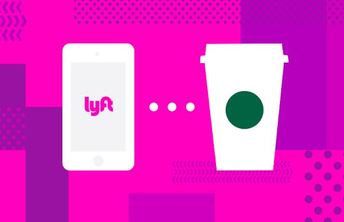 A little background of my association with the drink - I always thought of myself as a tea person (what's the concept of being an "x-person" anyway? Most of what one likes is a result of what one's exposed to. One can only like things one knows well about). So, well, I grew up in India, which is regarded as a 'tea-nation' (more like 'tea with milk' nation). Coffee was really limited to the context of dating - Yes, if you're 'spotted' with someone in a coffee shop, you're most probably dating. Well, almost. Things changed when I got here. Nobody here (that I knew of) drank tea. There were no tea shops, or chai ka galla's. Only coffee shops and coffee makers. Some how, I never happened to missed tea. I felt good about not being addicted to any drink (let's say so). And then came coffee. It's not difficult to get dragged down in the habit once you get into this country: Say you have a 7 am class. You barely make it in time, and feel like you're napping away. You look around, and notice that every one has their eyes (forcefully) wide open. You ask them "How so?". And every one tells you the same story about - how they're up and running, just and just because they stopped at a place, called 'Starbucks' on the way, and got this magical drink in their hands. "That's it?", you ask. "Not really, I got a refill too", they stress. Things like these get you in. Starbucks in every other block doesn't help. Free coffee maker in your graduate buildings and offices doesn't help either. Result: You easily get addicted to these beans. Fast forward to today, I have a cup of coffee every single day. I'm not addicted as some I've seen, but I like it being a part of my routine. Just like I'm okay with keeping other other false feel-good assumptions (not all, some). If having some caffeine makes me feel like I should have more energy on my side, sure - let's have a blast. How did we get here? Why did I write this? Well, I've never written a 'Happy Coffee Day' post before, and never intended to write one. Since some days, I have wanted to write about a marketing messaging I'm seeing within the app economy though (which is centered around coffee). And as I got to know of today being the National Coffee Day, I started to write, and as you can tell, my historical association with coffee 'spilled over' most of this post. Maybe I need a cup. Anyways, the marketing trend I was mentioning is the one where: Apps are trying to convince you to pay some bucks a month, by evaluating the amount to some cups of coffee. Maybe you've noticed it too. With me, this started a year back. I ended my Spotify premium subscription, and a pop-up appeared which looked like it came up just to convince me to 'stay premium'. "Maybe they're giving me a discount to stay on, as I just cancelled", I thought. I clicked - what did I find? "Listen to the music you want, all for the cost of 3 coffees a month", it said. I wasn't convinced. I went ahead with being a freemium user (loved Premium by the way, just don't feel the need anymore). Lyft came up with a similar marketing message this month. I've seen billboards that read "Hail a ride, at the cost of a cup of coffee". Now, I'll admit cabs (Uber/Lyft) are so cheap these days, that I do feel like calling one when I'm less than convinced of needing one. However, in this case, it came back to the message of communicating cost of subscription to cups of coffee. Let's put some thought to it. What if someone doesn't drink coffee - it will surely not appeal to them, right? Well okay, it's a safe bet to market this in US (as most are coffee drinkers), but then - doesn't it depend where are you buying coffee from? If I drink a K-Cup, should my ride be worth less than a dollar? Why does it assume I always buy a cup from Starbucks, and that too a Grande? Also, with Starbucks ramping up price increases of coffee by ~20 cents every year - am I supposed to think less of services by every passing year? Aren't they missing the point by quantifying cost of coffee, while they could market it with the association that make people addicted to it? That got me thinking - what's a cup of coffee worth, after all? Spill in your thoughts.. PC: Kahaniexpress  Childhood is when we all had a first glimpse at what all was possible to do in this intriguing world. We had unlimited options. We were free and ambitious. We could’ve gone either way. But then we had our ‘Childhood heroes’, who took the time and effort to mentor us, guide us through this new world we were getting increasingly aware of, and shaped our characters for the rest of our lives. Every one of you will have their own set of childhood heroes, and you should never forget them. For me, it was my grandmother, my mother, my school principle, and my high school teacher – each of them was very disciplined, an epitome of propriety, but at the same time, dearly loving. They would not just teach me lessons, but live them for me. And if I didn’t get them right, they would scold me in a way that I would feel even more loved. You know one other thing that they all had in common? They were all women. I don’t want to be a sexist either way, but I have had doubts whether men could’ve played any of those roles for me. Men indeed played very crucial role in my upbringing too, but had nowhere close an impact on my character that my heroes had. Now, each of my heroes were astounding leaders. Each were best of breed and had all that it could ever take to be one. They deserved to be in the topmost spots of respective fields they were good at. They weren’t there – I didn’t know why, but at least I got to spend more time with them that way. As I came of age, I knew it was because our society had a problem – they always went against their creators, which in this case, were women. Being a male, I’m unable to experience what the situation on ground is today, but I’ve seen changes over years. I’ve seen women lead Fortune 500 companies, and democratic nations. If you believe my vision, you would also believe that as we proceed with the current century, gender tides will turn and women will be the obvious leaders in every single walk of society. Men will find it very difficult to imitate their patience, creativity, and compassion. All being great hallmarks of a leader. To the leaders of tomorrow, yes – to all of those who are currently serving as heroes in their own lives, Wish you a very Happy Women’s Day! Don’t ever stop. Keep marching ahead. Society needs you. Did you have childhood heroes too, who were women? Do share your stories in comments. There's never enough of inspiration. Also if you're a woman yourself, what do you think of where the society stands today? Have we made enough progress? Picture source: plusquotes.com |
AuthorHello, Sunny here. I use this blog to share my thoughts. Well, one in a million, but I try to find time. Archives
September 2019
Categories |

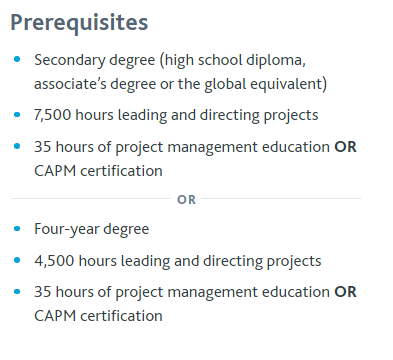


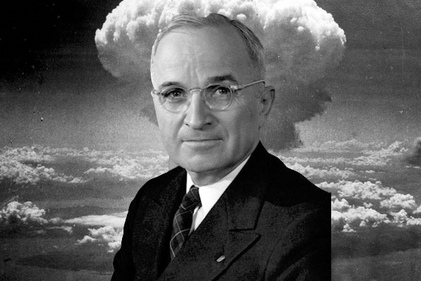
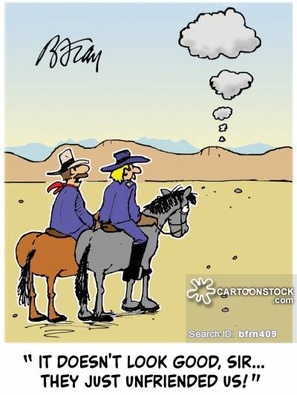
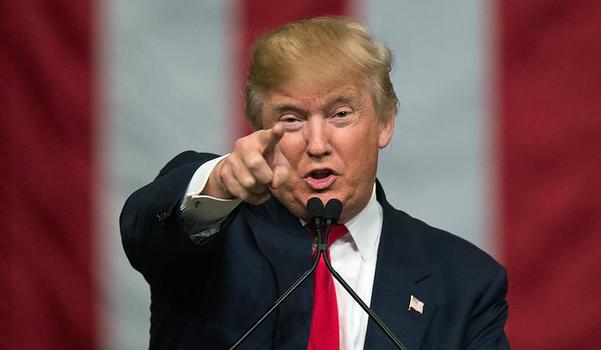


 RSS Feed
RSS Feed
